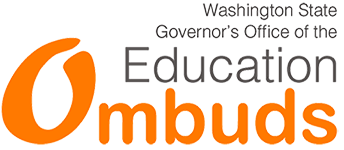6. Keeping Records
School records include academic, attendance, discipline, special education, testing, or other information pertaining to a specific student. Federal law defines records to include anything that is recorded in any way, including, but not limited to, handwriting, print, tape, film, microfilm, and microfiche.
How can I organize student records and keep notes to help me be an effective educational advocate?
- Keep everything you get.
- Get organized with a separate education file.
Keep a separate education file for each of your students. If you have a lot of papers, organize them in different categories: letters and correspondence, special education, grades and attendance, discipline notices, etc.
- Copy everything you send.
Keep copies of all letters, notes or other written communication with the school.
- Put things in writing.
Even if you have asked for something during an in-person or telephone conversation, follow it up with a note. It does not have to be typed, and it does not have to be perfect. It is a good reminder to the other person, and you will be happy that you have the note if there is some kind of problem down the road. (See the sample of a letter confirming a conversation at the end of this web page.)
Even more important is the fact that some things require that a request be made in writing if special legal protections are to fall into place. For example, a request for school records does not have to be in writing, but if the district is slow in getting the records to you or ultimately refuses to give them to you, the timelines that apply are triggered only by a written request.
- Keep a log.
When you are working on a particular issue with a school district, keep a special pad of paper in your student’s file that lists what is happening. A sample blank log sheet is included at the end of this web page.
Know Your Legal Rights
The Family Educational Rights and Privacy Act (FERPA), a federal law, guarantees:
Parents and guardians can view their student’s educational records. Once students turn 18, the student has access to their records.
If you feel your student’s records are inaccurate, you can request that the school correct the problem. If the school refuses, you have the right to a hearing. Even if you lose at the hearing, you can have your own interpretation of the inaccuracies permanently added to the student’s records.
In most cases, the school must get your permission to show your student’s records to others.
The Washington Public Records Act allows citizens to request and review most documents produced by schools and school districts—including policies and procedures, budgets, school business correspondence and teachers’ lesson plans.
